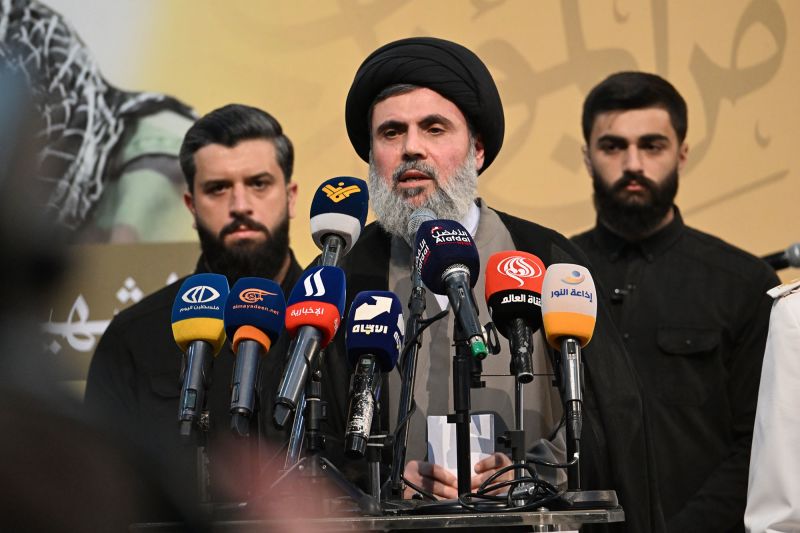Hashem Safieddine, born around 1964, is a significant and prominent figure within the Shiite Islamist political party and militant group Hezbollah. Based in Lebanon, Hezbollah plays a significant role in the region’s politics and security. Few individuals embody the multifaceted nature of the group more than Safieddine, who is widely speculated to be the successor to Hezbollah’s current leader, Hassan Nasrallah.
Safieddine is a part of the influential Safieddine family of Lebanon, which has strong roots in the political and socio-religious fabric of the country. The Safieddines have produced several prominent Shiite scholars, religious authorities, and political leaders over the years, of whom Hashem Safieddine is a notable member. However, what sets Safieddine apart is his deep involvement with Hezbollah, serving as the head of Hezbollah’s Executive Council.
Safieddine’s work within Hezbollah has been multifaceted. He oversees the group’s various social services, educational programs, and religious outreach efforts, demonstrating profound organizational skills and strategic acumen. However, he is not just an administrator. Safieddine has been deeply involved in shaping Hezbollah’s ideology and political direction, reflecting both his religious education and his political savvy. He often represents the organization in political and diplomatic circles, interacting with foreign delegations and engaging in negotiations on behalf of the group.
One of the most striking elements of Safieddine’s career has been his dedication to Hezbollah’s cause and ideology. He is reportedly a great believer in the concept of Wilayat al-Faqih, or the Guardianship of the Jurists, a central tenet of Hezbollah’s belief system. This principle refers to the political system based on Islamic jurisprudence, where a leading Islamic jurist oversees the governance of the state. This ideological commitment has helped him climb the ranks within the organization.
While Safieddine is deeply embedded in Hezbollah’s current operations, rumors of him becoming the next chief show an organization looking towards its future. Nasrallah, since succeeding the slain Abbas Mussawi in 1992, has steered Hezbollah through several major conflicts and has become the face of the organization. However, as Nasrallah ages, the group will need a figure capable of stepping into his shoes – and many believe Safieddine to be that figure.
Those advocating for Safieddine point to the breadth of his experience within Hezbollah. From his executive role to his ideological commitment, to the consensus-building capabilities that he has displayed in negotiations, Safieddine holds a comprehensive understanding of the organization’s workings. Moreover, his ties to influential families and networks within Lebanon and beyond mean he has the potential connections necessary to navigate the complex terrain of Middle Eastern politics.
Critics, however, argue that his management style might not necessarily translate into the charismatic leadership that Nasrallah has provided. In his current role, Safieddine’s been primarily an administrator, and it remains to be seen whether he can command the individual loyalty Nasrallah possesses amongst Hezbollah’s rank and file.
Regardless of such debates, the importance of Safieddine’s role within Hezbollah is clear. Be it as the head of the Executive Council or as a potential future chief, Safieddine represents a vital component of the organization’s leadership. Whether he eventually succeeds Nasrallah or not, his influence on Hezbollah and its future is undeniable.




